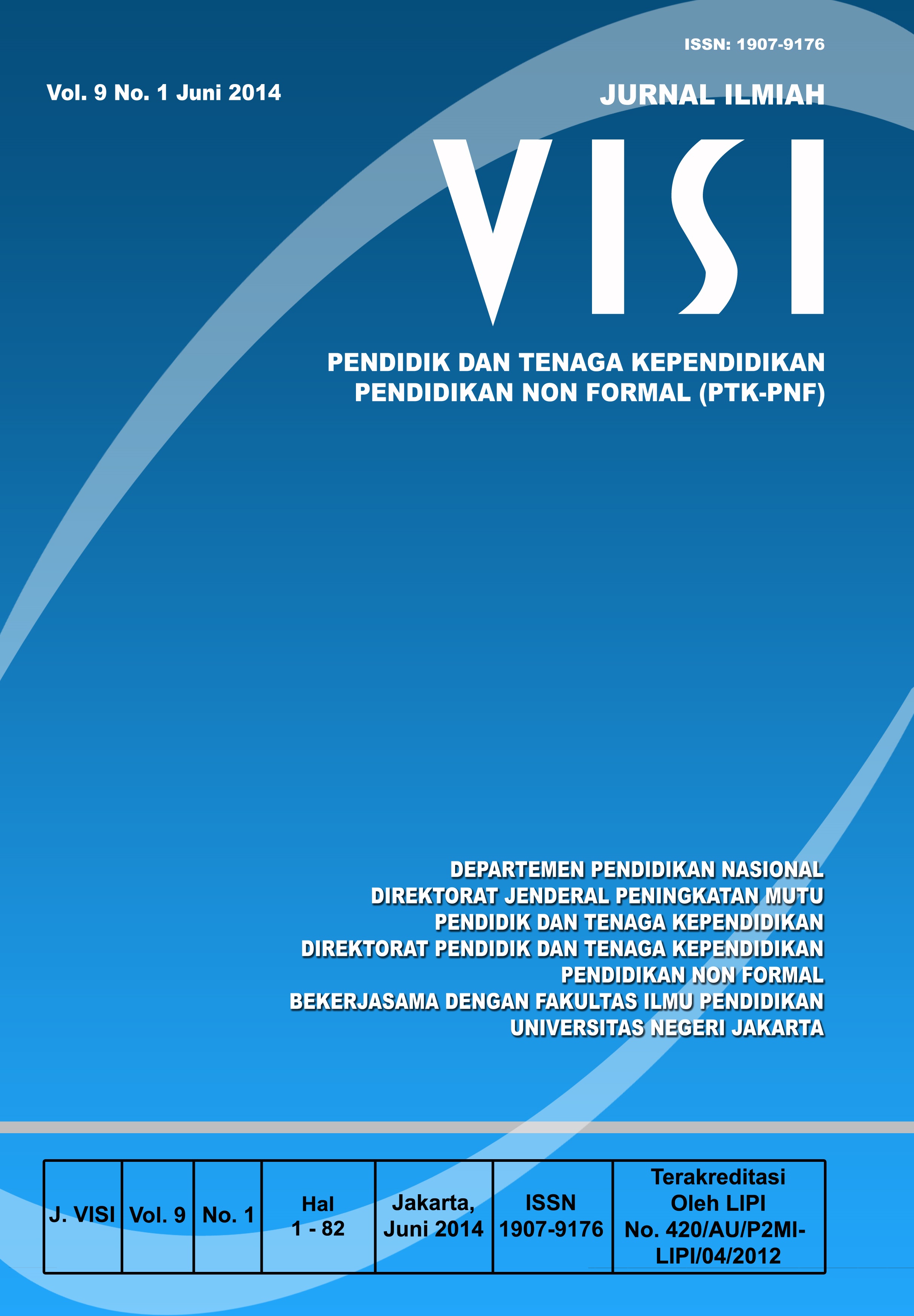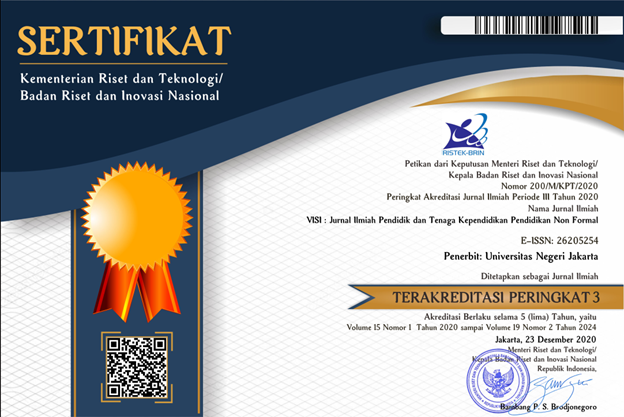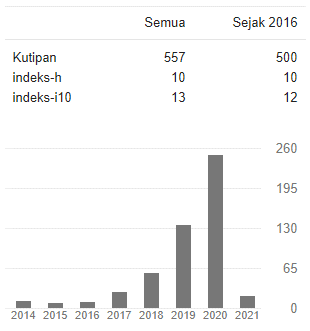MODEL DESA TERPADU PAUDNI MEWUJUDKAN MASYARAKAT PEMBELAJAR SEPANJANG HAYAT
DOI:
https://doi.org/10.21009/JIV.0901.7Keywords:
model, an integrated village PAUDNI, long-life learning communityAbstract
The pattern of rural development should move towards an integral-concept of development. Early childhood education program, (PAUDNI) has a huge potential to enhance people’s welfare. The village model of PAUDNI would be the best alternative solution of empowering community. The problem is how to develop the integrated village model that establishes a life-long learning community. This article describes, discusses, and explores the integrated village model of PUDNI. The conclusion is (1) the PAUDNI village is constructed by the andragogy theory by Knowles and Pannen, emphasizing the community empowerment on integral and integrated aspects; (2) the construction of PAUDNI village model includes community participations, cooperation, commitment, and integrity; (3) the implementation of the model should consider data and analysis, community participation, PAUDNI Units such as PKBM, LKP, PAUD and other non-formal and informal groups; (4) in supervision and guidance process, the model of PAUNI village should involve some related people or institutions. Implementing such a village model properly would create a life-long learning community and enhance the social welfare and the life quality of the community.
Downloads
Published
How to Cite
Issue
Section
License
Authors who publish with this Journal agree to the following terms:
- Author retain copyright and grant the journal right of first publication with the work simultaneously licensed under a creative commons attribution licensethat allow others to share the work within an acknowledgement of the work’s authorship and initial publication of this journal.
- Authors are able to enter into separate, additional contractual arrangementfor the non-exclusive distribution of the journal’s published version of the work (e.g. acknowledgement of its initial publication in this journal).
- Authors are permitted and encouraged to post their work online(e.g. in institutional repositories or on their websites) prior to and during the submission process, as it can lead to productive exchanges, as well as earlier and greater citation of published works.
- Users/public use of this website will be licensed to CC BY-NC-SA Creative Commons Attribution-NonCommercial-ShareAlike 4.0 International License









